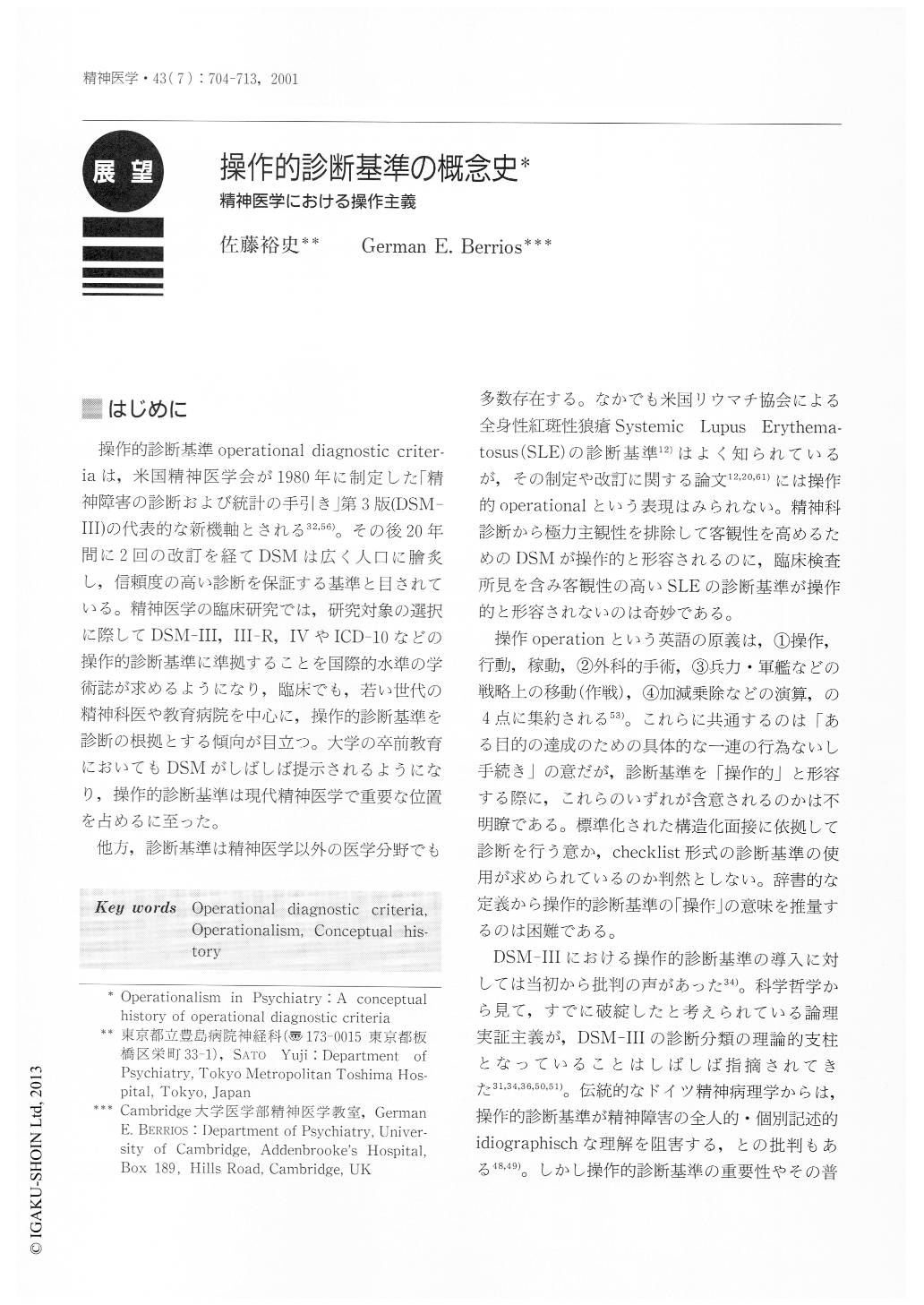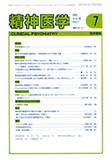Japanese
English
- 有料閲覧
- Abstract 文献概要
- 1ページ目 Look Inside
はじめに
操作的診断基準operational diagnostic criteriaは,米国精神医学会が1980年に制定した「精神障害の診断および統計の手引き」第3版(DSM-III)の代表的な新機軸とされる32,56)。その後20年間に2回の改訂を経てDSMは広く人口に膾炙し,信頼度の高い診断を保証する基準と目されている。精神医学の臨床研究では,研究対象の選択に際してDSM-III,III-R,IVやICD-10などの操作的診断基準に準拠することを国際的水準の学術誌が求めるようになり,臨床でも,若い世代の精神科医や教育病院を中心に,操作的診断基準を診断の根拠とする傾向が目立つ。大学の卒前教育においてもDSMがしばしば提示されるようになり,操作的診断基準は現代精神医学で重要な位置を占めるに至った。
他方,診断基準は精神医学以外の医学分野でも多数存在する。なかでも米国リウマチ協会による全身性紅斑性瘡Systemic Lupus Erythematosus(SLE)の診断基準12)はよく知られているが,その制定や改訂に関する論文12,20,61)には操作的operationalという表現はみられない。精神科診断から極力主観性を排除して客観性を高めるためのDSMが操作的と形容されるのに,臨床検査所見を含み客観性の高いSLEの診断基準が操作的と形容されないのは奇妙である。
Objective : The reliability of current psychiatric nosology is based on so-called Operational Diagnostic Criteria (ODC). It remains unclear, however, what the term 'operational' means and what role it plays in nosology. The authors examine the current usage of ODC in the light of both operationalism (as a philosophy of science) and of the changing definitions of 'diagnostic criterion'.
Method : Historical sources on operationalism in physics and psychology were studied together with its importation into psychiatry. The results of a MEDLINE literature search for articles dealing with ODC or operational definition (OD) were then analysed.
Results : Started in physics by Bridgman, 'operationalism' refers to a theory of meaning with links to logical positivism. Bridgman regarded the meaning of a technical term as tantamount to the laboratory operations designed to demonstrate its existence.
The importation of operationalism into psychiatry took place without asking whether its conceptual implications could be reconciled with the past of psychiatry. Hempel, Stengel and Kendell promulgated operationalism, emphasizing its relevance to communication among psychiatrists, diagnostic reliability and validity. The worldwide acceptance of DSM-IV cannot be an empirical evidence for the achievement of these desiderata, for such a myopic interpretation ignores the socio-economic/political factors behind DSM.
Examination of the publications using OD and ODC suggests that these have been mostly used as weasel words, mercifully with little undue confusion and harm. Apparently no authors have ever specified the “operations” undertaken for defining the terms in the psychiatric lexicon.
Conclusions : The current success of operationalism in psychiatry is not due to its contribution to restructuring diagnostic categories, but to a rhetorical value that befits neo-capitalism. Diagnostic terms in psychiatry have a long history as an intrinsic part of their meanings and require periodic calibration. To curtail this hermeneutic system by referring to some putative specific behaviour as the final and stable referent for the diagnostic terms in psychiatry is unlikely to work.

Copyright © 2001, Igaku-Shoin Ltd. All rights reserved.


